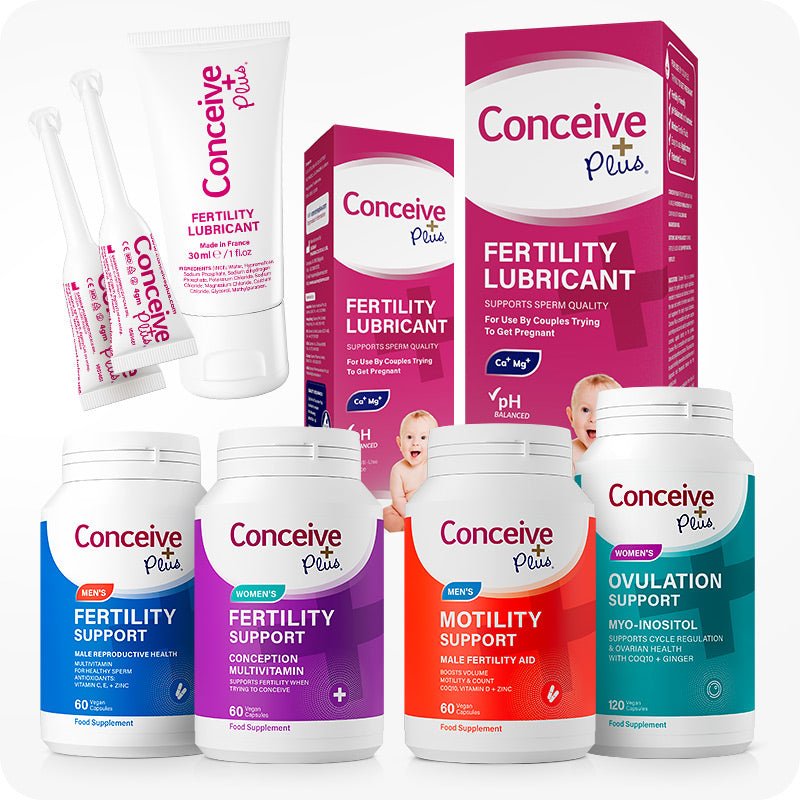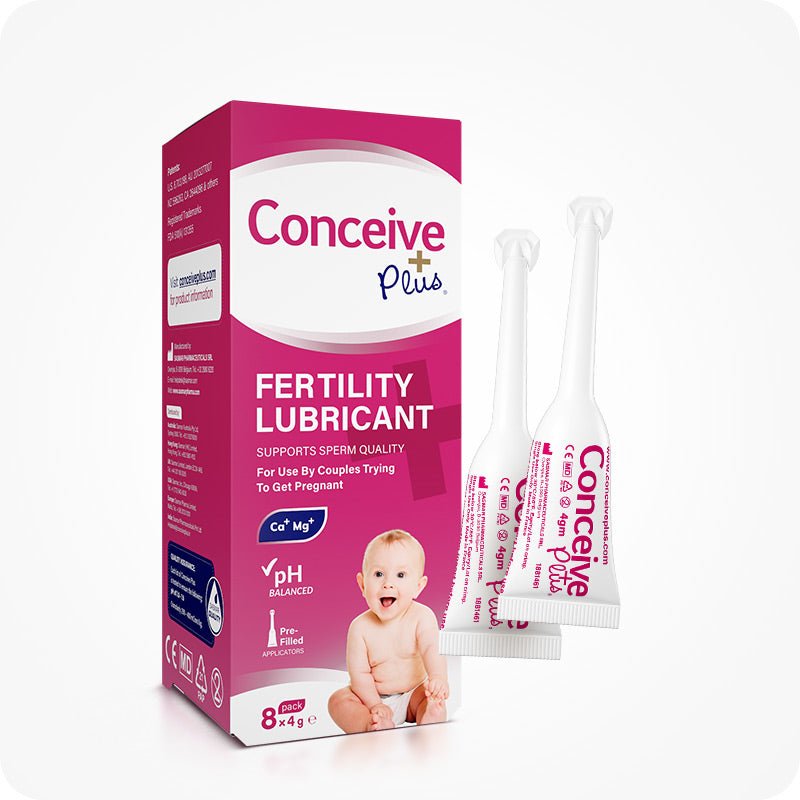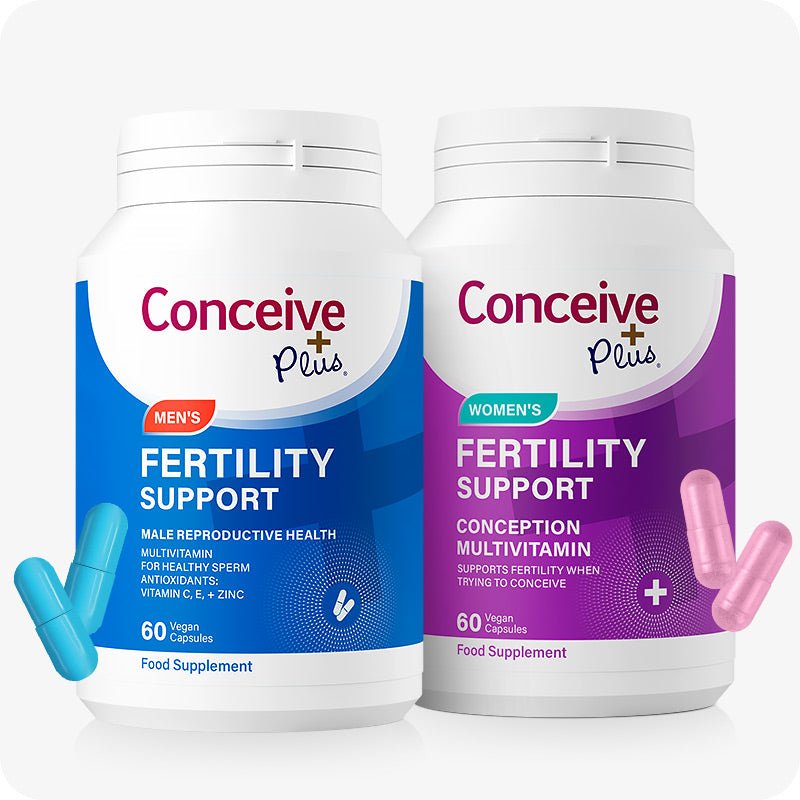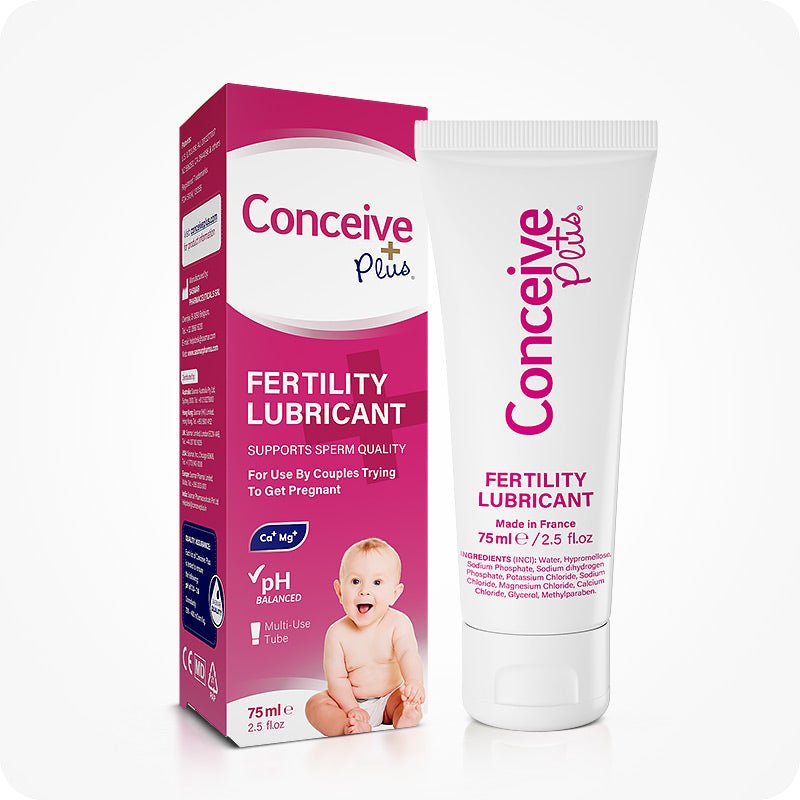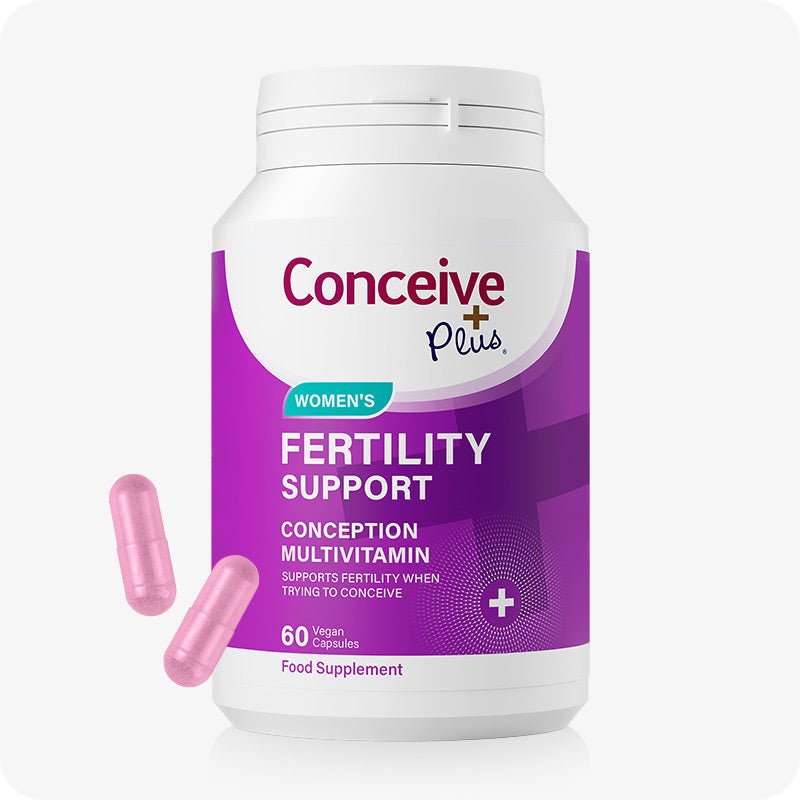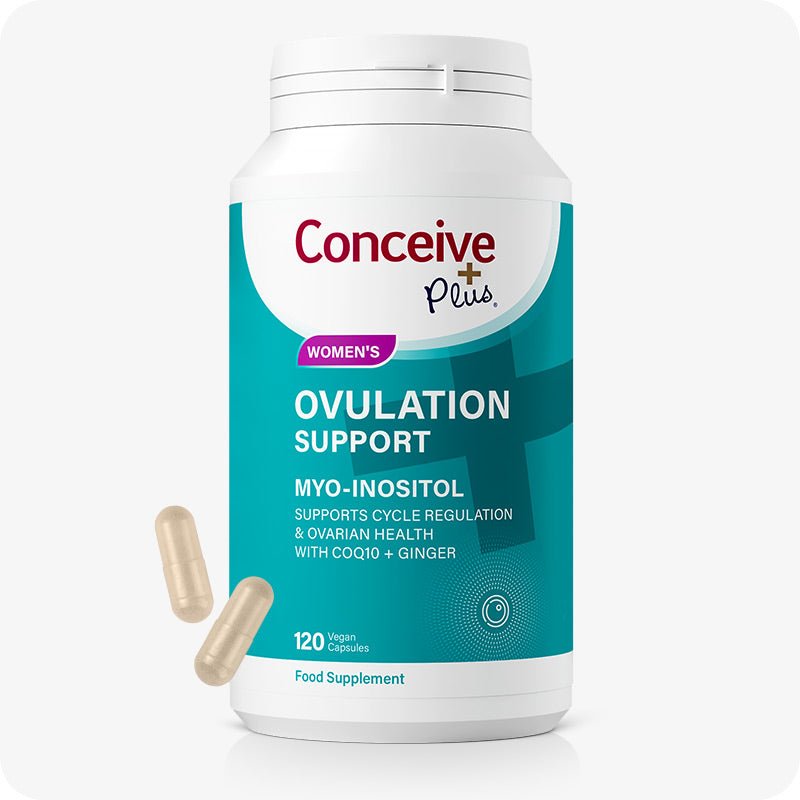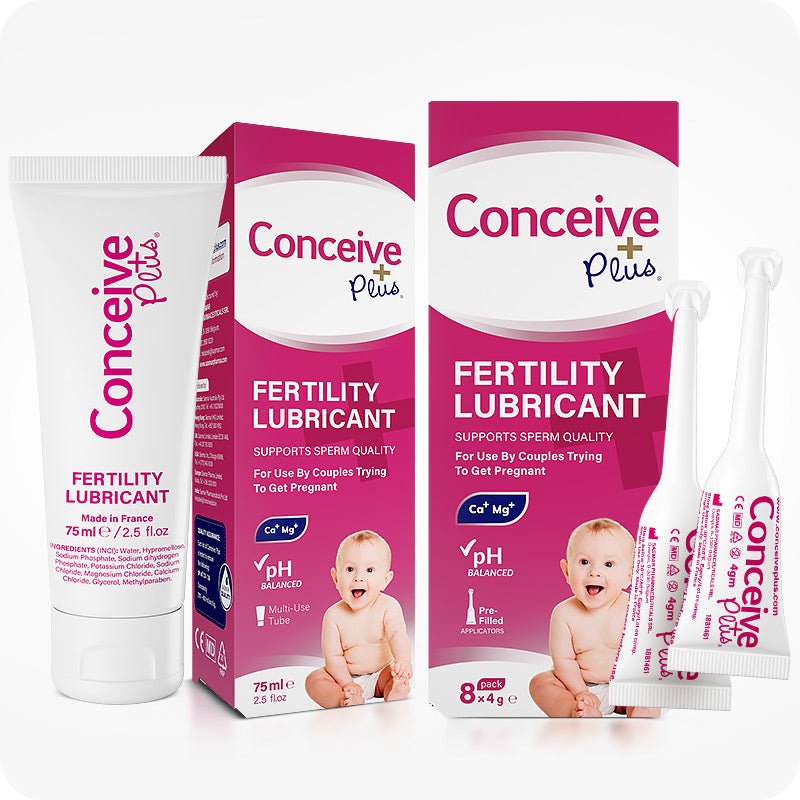Fertility Supplements for Men: How They Work

Healthy sperm is not a guarantee and fertility might not even be a topic on the radar until you try to start a family. But when you and your partner decide it’s time to conceive, the quantity and quality of your sperm can make a big difference to your baby-making journey. Many couples turn to fertility supplements for men to boost sperm health naturally and improve the odds of successful conception.
This article explains what constitutes healthy sperm and the lifestyle habits that can affect your sperm. It also outlines the ingredients found in the best men’s fertility vitamins, and the benefits your sperm experiences from providing it with the essential nutrients in men's vitamins for fertility.
What Makes Sperm Healthy?
Healthy sperm is determined by three vital factors. How well they are formed, how many are produced, and how well they move [1]. If either of these is adversely affected male fertility is typically lowered.
Quantity: Fertility is optimal when semen contains at least 15 million sperm per millilitre. Although only one sperm is required to fertilise an egg, many don’t make it through the arduous journey in the female reproductive tract. Therefore a lower sperm count can reduce the likelihood of pregnancy due to fewer opportunities for fertilization.
Motility (Movement): Sperm must be able to swim through the cervix, uterus, and fallopian tubes to reach and fertilise an egg. For successful fertilisation to occur, a minimum of 40% of sperm must exhibit movement but ideally, this number should be higher.
Morphology (Structure): Healthy sperm typically have oval heads and long tails to propel them forward and aid in their movement. When sperm are perfectly formed, they swim better and have an increased likelihood of reaching the egg.
Why Sperm Sometimes Needs a Boost
Improving male fertility does not necessarily mean you’re dealing with infertility but rather that you’re improving your chances of conceiving. It’s not an easy journey for sperm to swim through the cervix and up the fallopian tube to fertilise an egg.
On top of that, lifestyle factors, chemicals, hormone imbalances, and even certain foods can lower the quality and quantity of sperm. Certain nutrients, however, are known to boost sperm cells, rebalance hormones, increase sperm production, and improve their motility. Many of these nutrients are found in fertility vitamins for men, which are specifically formulated to target sperm health and hormonal balance.
The sperm you ejaculate today, for instance, began developing approximately three months ago from the smallest cells in your body. Sperm cell damage is more common in today’s world, however, due to the increased amount of toxins in the environment, products, and foods. And this can affect not only the quality of sperm produced but also the quantity.
Once released into your partner’s vagina, healthy sperm can swim around searching for an egg to fertilise for up to five days. Whereas, unhealthy sperm may not even make it through the cervix.
In this respect, male fertility supplements are formulated with the essential nutrients to improve fertility by enhancing the health, vitality, and mobility of your sperm. Read on to learn about the hormone imbalances, lifestyle habits, and toxins that can negatively impact your sperm.
What Negatively Impacts Sperm Health?
In addition to hormone imbalances, several lifestyle habits and toxins can influence sperm health and reduce male fertility. Becoming aware of such disturbances can help men adopt healthier habits and avoid toxins when trying to conceive.
It’s important to understand that health conditions affecting sperm health will need medical treatment before improving. These include sexually transmitted infections (STIs), diabetes, thyroid issues, and chromosome disorders [2].
However, incorporating male fertility vitamins and men fertility supplements into your routine will help improve sperm parameters influenced by any of the following.
Unhealthy Habits
Smoking, using illicit drugs, and consuming more than 4-6 alcoholic drinks per week have all been proven to adversely impact the production of sperm and overall sperm health [3].
Cell Phones
Early studies into the use of cell phones showed a decrease in semen parameters such as sperm count and motility due to the emission of radiofrequency electromagnetic waves (RF-EMW) [3].
Caffeine & Energy Drinks
Research into how caffeine affects male fertility revealed a negative impact on sperm DNA fragmentation when the daily caffeine intake is significant. When limited to 800mg/day, caffeine did not impact sperm. However, consuming more than this amount, whether through coffee or energy drinks, negatively impacts sperm health [3].
Air Pollutants
Air pollutants and toxins such as carbon monoxide, pesticides, sulfur dioxide and even ozone have also been proven to lower sperm quality and damage sperm DNA. Essentially, emissions from car exhausts, industrialisation, farming, and even the living room fire that keeps you warm in the winter can negatively impact sperm health [3].
Poor Sleep
In addition to fatigue, low moods, and depression, poor sleep is known to impact your cardiovascular health, weight, and cause many other health issues. Studies also suggest that poor sleep can negatively influence sperm count and motility [3].
Hormone Imbalances
Just like women, men’s hormone levels are directly related to their reproductive health. Low testosterone levels, for example, and decreased gonadotropin levels can negatively affect sperm health and male fertility [4].
Low DHEA
DHEA (dehydroepiandrosterone) is a hormone produced by the adrenal glands and is essential for bone health, a boosted immune system, and reproductive health in both men and women.
In men, DHEA is converted to testosterone, which is required for sperm production and development. In men with fertility issues due to low DHEA, when they take a DHEA supplement fertility often improves [5]. If you’re comparing brands, the best fertility supplements UK are those that combine science-backed ingredients with clean, safe formulations recommended by fertility specialists.
Below, we delve into the helpful nutrients and the best vitamins for male fertility that are most commonly found in the best male fertility supplements.
Ingredients In the Best Vitamin Supplements For Male Fertility
Male fertility supplements contain a range of ingredients designed to support sperm production, structure and motility. However, not all male fertility supplements are created equally and there are some vital ingredients to look out for [6].
When choosing men’s fertility supplements, make sure the brand you check the labels for these important male fertility vitamins.
- Vitamin C - Acts as an antioxidant to protect sperm from oxidative damage
- Vitamin E - Supports sperm motility and overall sperm health
- B Vitamins - Vitamins B2, B3, and B6 for hormone regulation and erectile function
- Selenium - Enhances sperm production, structure, and motility
- Coenzyme Q10 - Boosts sperm quality and reduces oxidative stress
- Zinc: Essential for sperm, production, development and hormone metabolism
- Folic Acid - Helps prevent sperm DNA fragmentation and cell division
- L-Carnitine: Improves sperm motility and overall sperm health
- Maca Root: Enhances libido and supports hormonal balance
- Tribulus Terrestris: Boosts testosterone levels and improves sperm quality
- Ginseng: Supports overall sperm vitality and male reproductive health
- Vitamin D: Crucial for hormonal balance and reproductive function
Are Male Fertility Supplements Available in the UK?
Yes, several brands of male fertility supplements uk are available for purchase online or from well-known chemists like Boots, Lloyds Pharmacy, Weldricks, and more.
When choosing male fertility supplements it’s important to ensure that the brand you choose is made from natural ingredients with no artificial additives or chemicals and includes each of the essential ingredients mentioned above.
It’s also vital to check that the fertility supplement you choose is clinically proven, scientifically backed, certified as safe, and recommended by doctors or fertility specialists.
To find the best fertility supplements for men in the UK, reviewing the top 10 male fertility supplements will help you identify the options with proven success and efficacy. Products ranked among the best male fertility supplements UK typically feature ingredients like CoQ10, zinc, and maca root, known for improving sperm count and motility.
How Long Should Men Take Fertility Supplements?
Ideally, men’s fertility vitamins should be taken for at least three months (90 days) or until their partner gets pregnant.
Bearing in mind that sperm takes 70-90 days to develop from sperm cells, it’s important to provide the essential nutrients for the entire sperm development process.
Lifestyle Adjustments to Produce Healthy Sperm
Whether you're having fertility issues or you’ve decided to start a family and want to boost the overall health of your sperm, taking a male fertility supplement will establish a nutritious environment for sperm production, development, and movement.
In addition, some simple lifestyle changes can help [7].
You can also maintain a healthy weight, eat a well-balanced diet, and ensure you stay hydrated to improve sperm health. Lowering your stress levels with exercise or meditation will prevent hormone imbalances and ensure testosterone levels are not affected.
In addition to lowering stress levels, daily exercise will also stabilise the production of antioxidant enzymes that support sperm development.
The Bottom Line
Several factors can negatively impact your sperm production, sperm count, and their ability to swim unhindered toward an egg for fertilisation. While this doesn’t necessarily mean you are infertile, it can pose challenges when trying to start a family. Incorporating fertility supplements for men into your daily routine can play a supportive role in overcoming these challenges by enhancing reproductive health from within.
Rather than be disappointed in your swimmers each month when conception doesn’t occur, consider investing in mens fertility supplements to improve your sperm health and chances of conceiving. Packed with essential male fertility vitamins and nutrients, they are carefully formulated to support sperm production, structure, development, and motility. Choosing high-quality men fertility vitamins ensures you're providing your body with optimal nutrients to support every stage of sperm development.
References
- Mayo Clinic - Healthy sperm: Improving your fertility - https://www.mayoclinic.org/healthy-lifestyle/getting-pregnant/in-depth/fertility/art-20047584
- National Library of Medicine - What are some possible causes of male infertility? - https://www.nichd.nih.gov/health/topics/infertility/conditioninfo/causes/causes-male
- Male Infertility Guide - The Impact on Sperm Quality of Lifestyle Choices and Social Toxins - https://www.maleinfertilityguide.com/sperm-toxins
- Male Infertility Guide - HCG / Human Chorionic Gonadotropin for Male Infertility - https://www.maleinfertilityguide.com/hcg
- National Library of Medicine - of Dehydroepiandrosterone (DHEA) Supplementation on Ovarian Cumulus Cells following In Vitro Fertilization (IVF)/Intra-Cytoplasmic Sperm Injection (ICSI) Treatment—A Systematic Review - https://www.ncbi.nlm.nih.gov/pmc/articles/PMC10304479/
- National Library of Medicine - Antioxidant supplements and semen parameters: An evidence based review - https://www.ncbi.nlm.nih.gov/pmc/articles/PMC5203687/
- Healthline - 10 Ways to Boost Male Fertility and Increase Sperm Count - https://www.healthline.com/health/boost-male-fertility-sperm-count#stress-reduction






